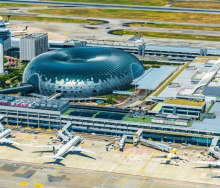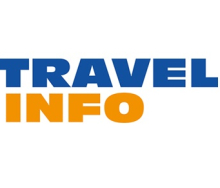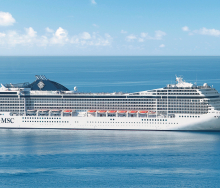Rennies Travel and Asata’s victory over SARS in the matter of the application of zero-rating to upfront and supplementary commission, has been hailed by Asata as “David emerging victorious over Goliath”.
In a media release, Asata has announced that the Supreme Court’s upholding of Rennies Travel’s appeal brought to an end the industry’s six-year battle over the application of zero-rating on upfront and supplementary commission for the arranging of international air travel (in terms of section 11(2)(d) of the VAT Act).
The Supreme Court of Appeal on June 7 upheld with costs, the appeal by Rennies Travel against the order of the tax court handed down in December 2020 and it set aside “the additional VAT assessments in respect of the appellant’s February 2012 to December 2016 VAT periods, to the extent that they impose VAT at the standard rate on supplementary commission”. SARS had already accepted that the original assessment of VAT also applying to upfront commission was incorrect.
The Rennies Travel case was an important industry test case, delivering the precedent the industry had been fighting for, for many years, said Otto de Vries, CEO of Asata.
Since 2016, Asata and its legal counsel have attempted to convince SARS to engage, because the “arranging of international transport” is zero-rated and supplementary commission in the case of international transport, is merely a change in the agreed commission if certain volumes are reached, and it should also be zero-rated on the same basis because there is not another supply.
“Asata had, over the years, written to SARS, the SARS Commissioner, Edward Kieswetter, and former Finance Minister Pravin Gordhan, held countless meetings with SARS, tax consultants and lawyers, and eventually also extended financial support to Rennies to help towards the legal costs of this test case,” said De Vries.
“We always knew that, not only were we right in our interpretation of the law, but that if we failed to convince the courts, the industry would find itself in an untenable position. It would have been impossible to recover those funds from clients and nobody would be in a position to pay those so-called back taxes and associated fines and penalties; this even before COVID struck.”
SARS’ interpretation of how VAT is applied to supplementary commissions on bookings for international transport had been hanging over the industry’s head for many years, with travel businesses being forced to make provisions to pay VAT on supplementary commissions if the courts upheld the December 2020 judgment.
“With this precedent being set and consequent clarity provided for both the travel industry and SARS officials, we can now breathe a sigh of relief and get back to business without the sword of Damocles hanging over us. This is indeed a rare occasion where David emerges victorious over Goliath and it is a much-needed win for an industry that has suffered greatly throughout the COVID pandemic,” said De Vries.
An addendum to the Asata’s release explained the background to the appeal
The arranging of international air transport is zero-rated in terms of section 11(2)(d) of the VAT Act. Whilst SARS finally agreed that upfront commission meant that the service of arranging international transport provided by the travel agent, attracts zero-rating on those commissions earned, they interpreted that all supplementary commission received from airlines are not considered revenue earned in respect of “arranging international transport” but for a separate supply.
ASATA’s opinion, and that of their members, was that since the introduction of the VAT, commissions and supplementary commissions as they relate to the arranging of international transport were all zero-rated because there is not another supply and that the arranging of international transport and the selling of tickets is one and the same thing and all revenues earned were for the same, original arrangement, both upfront commission as well as supplementary commission.
Our view was that the commission and supplementary commission are paid for arranging transport for passengers, because the ticket is nothing more than evidence of payment for the fare paid to the airline by the passenger, and all commission is consideration for arranging that trip.
Any supplementary commissions received were just further revenue received at a later date for the same tickets. Whenever there is a flight cross-border (including any domestic leg which forms part of the same flight) there is simply no basis upon which the commission or supplementary commission paid by the airline could be subject to any rate other than the zero rate.
In 2005 SARS issued a ruling to ASATA clarifying the application of zero-rating on international transport. It confirmed that commissions were zero-rated.
Whilst SARS withdrew all rulings in 2011, that did not necessarily mean that this long-held interpretation of the law was incorrect. Further it was not brought to the industry’s attention to change anything in the way we applied VAT on international air travel. No new binding ruling was issued so the entire travel industry and the airlines were applying zero rating as before.
There had also not been any amendments to section 11(2)(d) of the VAT Act. This clearly was a change in the interpretation of the Act by SARS. It’s also worth noting that this change in interpretation would not yield any future benefit to SARS, as any output VAT paid to SARS would be offset by the input VAT claimed by the airlines in question, but by seeking to backdate the interpretation and the opportunity to invoke penalties and interest, the travel industry was being unreasonably punished for consistently applying the Act as we believed it was intended. The court has clearly and unequivocally agreed with us.














